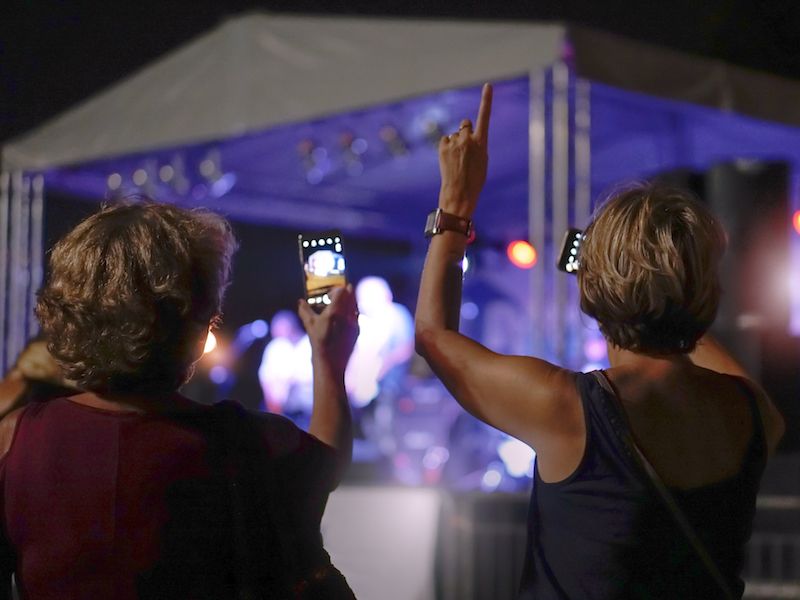
We’ve been getting excited about summer fun all year: swimming in the pool, going to the beach, and some activities that could harm your hearing. That’s correct, summer has a lot of unseen dangers to your ears, either from loud sounds or the external situations you may find yourself in. Any sounds over 80 decibels can injure your ears, while permanent loss of hearing can take hold in pools or other bodies of water. To keep your ears safe this summer, you have to be mindful of your environment and take precautions. Read on to learn the summer’s six hidden risks to your ears.
At Concerts, Use Hearing Protection
Summer is concert time, but even if you go to an outdoor arena, you still should attend to your ears. Live music can reach over 90 decibels, even at outdoor shows, which is inside the danger zone of hearing loss. That’s the reason it’s always a good plan to use earplugs regardless of whether you’re going to a show indoors or outdoors. You can still hear the sounds with earplugs in it’s just dampened a little. If you’re taking young kids to a concert, think about buying them a heavy duty pair of earmuffs since their hearing is much more delicate than those of adults.
Fireworks Are More Than Just Loud
Honestly, there are a lot of reasons to avoid fireworks in the summer. This is not about the professional 4th of July displays, we mean the backyard fireworks which every summer season cause hundreds of accidents. Backyard fireworks get to volume levels of over 155 which can damage your ears along with causing hand problems, loss of sight and backyard fires. This 4th of July, leave the fireworks to the pros and enjoy the show from a protected and sound distance.
Loss of Hearing Can be Caused by Lawnmowers
If you’re really serious about your yard, chances are you’re out there each week on your mower, using your edger, and trimming your bushes. But this muffled feeling in your ears is a sign that your ears have taken damage. That’s because the lawn tools, which are constantly loud, have a slow and steady impact on your hearing. No doubt you’ve noticed landscapers using some type of hearing protection, you should take a hint from them and use earmuffs or earplugs next time you take care of your yard to make certain your ears doesn’t get injured.
Here’s How to Protect Your Hearing When You Take a Swim
Millions of people suffer from swimmer’s ear each summer, which happens when bacteria-packed water becomes stuck in your ear canal. The bacteria then infects the ear, producing swelling and painful earaches. It’s not exclusively lakes and rivers that hold these bacteria, they can also be found in hot tubs and pools if they aren’t cleaned and treated thoroughly. But if you have your ears treated by a hearing professional you will probably be fine, and no permanent loss of hearing will occur. To protect against swimmer’s ear, though, you should wear special swimming earplugs in the pool and get your pool water tested to make sure the chemical balance is ok.
Water Sports And Boats
Summer is a taste of freedom for those individuals who love to be out on the water, smelling the salt air from the ocean or the fresh breeze of the lake. But, boat and jet ski engines are usually noisy,they can get up to over 100 decibels. Lasting hearing impairment can be the result after only 15 minutes of exposure to that much noise. Once more, it’s really in your best interests to wear a pair of throw away, foam earplugs when you’re out on the water to make sure you don’t inadvertently injure your hearing.
Car Races Can Hurt Your Hearing
It doesn’t matter what kind of auto racing you like, stock cars, midgets, motorcycles, drag racing, Formula 1. If you go to a lot of auto-races this summer, they all present a peril. 120 dB is well within the danger zone for hearing impairment and a number of races go well above this. As mentioned earlier, your children should wear muffs whereas you should use earplugs at least. If not, you may not get to enjoy the sound of those engines in the future.
